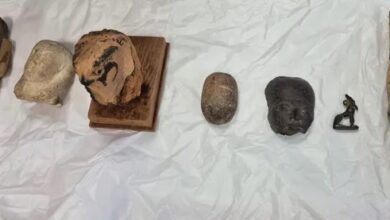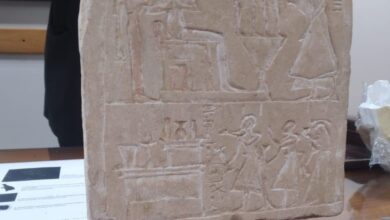A group of Egyptian citizens have filed a complaint to the office of the attorney-general demanding the cancelation of a Salafi preacher’s television program after he issued a fatwa (a religious edict) on the sale of antiquities.
A Facebook group has been set up by those concerned on which they say that they have filed a complaint to attorney general Abdel Maguid Mahmoud to ban the live television program presented by Sheikh Mohamed Hassan.
Hassan, a prominent preacher, currently presents a program on the Salafi-affiliated al-Rahma channel. The program, which is aired live, features inquiries via phone calls and he answers them on the spot.
In response to a telephone call regarding Islam’s position on selling antiquities, Hassan said, “If it is found on land that you own, or in your house, then it is yours by right and you are not doing anything wrong.”
As for antiquities which are found on a public land, Hassan explained, a Muslim is prohibited from selling them, advising that he should re-bury them.
The people who filed the complaint argue that this fatwa means that all antiquities discovered on private land are the possessions of the owner of that land, and that he has the right to sell and profit from them. This contradicts the law, which punishes any private circulation of antiquities.
They argue that the fatwa poses a serious threat to Egyptian history and its national heritage. They consider the ruling as an affirmation of the looting and theft of Egyptian antiquities which are by extension, a part of the world’s heritage.
Extremist Islamic movements have often taken a hostile stance against statues and other antiquities from pre-Islamic eras.
In 2001 in Afghanistan, the Taliban movement destroyed many ancient monuments in the country including a statue of Buddha and some unique examples of early Buddhist art, in accordance with religious rulings.
In Egypt the trade in antiquities, especially those found on the land of private citizens has been traditionally a common practice although it’s punishable by law.




